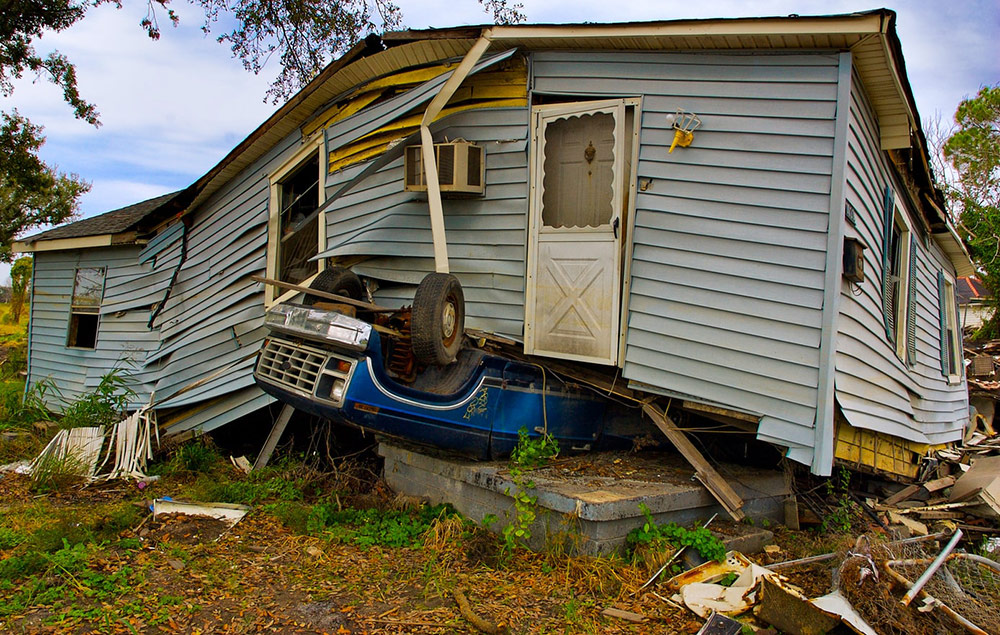The U.S. Department of Housing and Urban Development (HUD) has announced the implementation of federal disaster assistance for areas in the State of New Jersey and the State of New York affected by Hurricane Ida.
On September 5, 2021 President Biden issued major disaster declarations for the New Jersey counties of Bergen, Gloucester, Hunterdon, Middlesex, Passaic, and Somerset, and for the New York counties of Bronx, Kings, Queens, Richmond, and Westchester.
The President’s declaration allows HUD to offer assistance to impacted families living in these counties. Effective immediately, HUD is:
- Providing immediate foreclosure relief – HUD's automatic 90-day moratorium on foreclosures of Federal Housing Administration (FHA)-insured home mortgages commenced on the date of the Presidential major disaster declaration, and foreclosures of mortgages to Native American borrowers guaranteed under the Section 184 Indian Home Loan Guarantee program. For assistance, call your loan servicer or FHA's Resource Center at 1-800-304-9320;
- Making mortgage insurance available – HUD's Section 203(h) program provides FHA insurance to disaster survivors whose homes were destroyed or damaged to such an extent that reconstruction or replacement is necessary and are facing the daunting task of rebuilding or buying another home. Borrowers from participating FHA-approved lenders are eligible for 100 percent financing, including closing costs; and
- Making insurance available for both mortgages and home rehabilitation – HUD's Section 203(k) loan program enables those who have lost their homes to finance the purchase or refinance of a house along with its repair through a single mortgage. It also allows homeowners who have damaged houses to finance the rehabilitation of their existing single-family home.
- Sharing information on housing providers and HUD programs – The Department will share information with FEMA and the States on housing providers that may have available units in the impacted counties. This includes Public Housing Agencies, Tribally-Designated Housing Entities, and Multi-Family owners. The Department will also connect FEMA and the States to subject matter experts to provide information on HUD programs and providers.
- Providing flexibility to states and local governments – HUD will issue regulatory waivers to allow communities more flexibility to use their existing Community Development Block Grant, Continuum of Care, HOME, Housing Opportunities for Persons with AIDS, and Emergency Solutions Grant funds. These waivers will make it easier for communities to respond quickly in the aftermath of Hurricane Ida.
- Providing flexibility to Public Housing Authorities – Public Housing Authorities can apply for needed administrative flexibility through disaster waivers, in response to the devastating aftermath of Hurricane Ida. For detailed information on applying for a waiver, click for the latest guidance Federal Register Disaster Relief Notice. The Department also released PIH Notice 2021-14, which granted administrative flexibilities to waive or establish alternative requirements for numerous statutory and regulatory requirements for various Public Housing Programs. As a reminder, to be eligible to receive a disaster waiver, the PHA must be located in an active Major Disaster Declaration (MDD) area and submit a waiver within four months of a disaster.
- Ensuring HUD-approved housing counseling agencies are ready to assist – HUD-approved housing counseling agencies have counselors available to assist those who are impacted by natural disasters to determine assistance needs and available resources. Find a HUD-approved housing counseling agency.
- Assisting with housing discrimination – Housing discrimination sometimes occurs when people are attempting to find housing following a disaster. HUD's Office of Fair Housing and Equal Opportunity is available to assist people who believe they have experienced housing discrimination. If you think your rights have been violated, you should file a fair housing complaint with the U.S. Department of Housing and Urban Development (HUD). You can file a complaint by calling HUD at 1-800-669-977 or visiting How to File a Complaint on HUD’s website. Materials and assistance are available for persons with limited English proficiency.
Individuals who are deaf or hard of hearing may contact the Department using the Federal Relay Service at 800-877-8339. You should file a complaint with HUD as soon as possible. HUD may be unable to help you if your complaint is filed more than one year after the last discriminatory act. You may also be able to file a complaint with a state or local fair housing agency.
 Benefits.com Advisors
Benefits.com Advisors
With expertise spanning local, state, and federal benefit programs, our team is dedicated to guiding individuals towards the perfect program tailored to their unique circumstances.
Rise to the top with Peak Benefits!
Join our Peak Benefits Newsletter for the latest news, resources, and offers on all things government benefits.


















